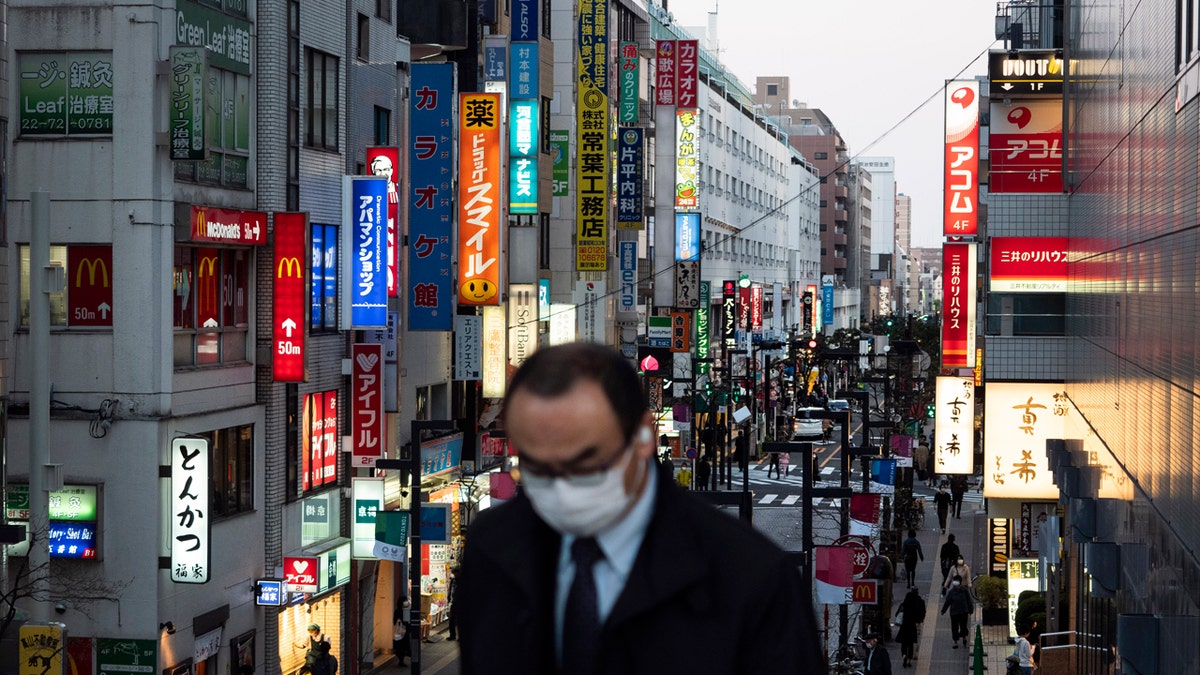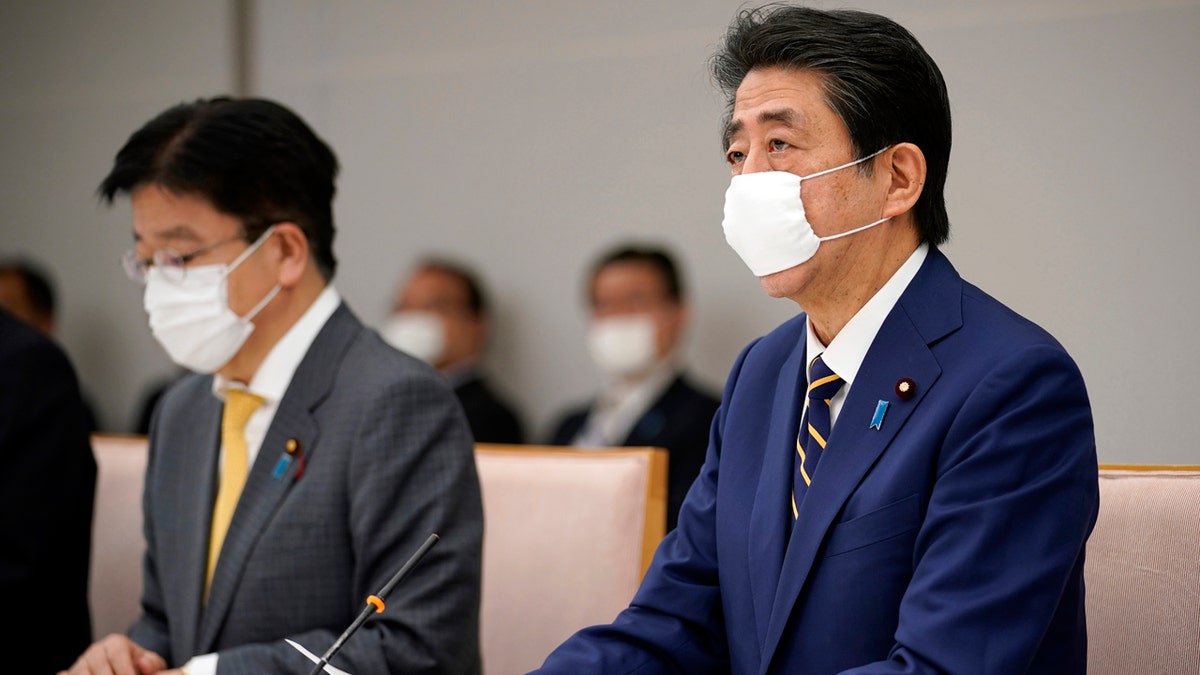Get all the latest news on coronavirus and more delivered daily to your inbox. Sign up here.
As the number of coronavirus cases surges in Japan, Prime Minister Shinzo Abe declared a month-long state of emergency on Tuesday for Tokyo and six other prefectures in an attempt to slow the outbreak.
The prime minister's announcement came as COVID-19 infections in Tokyo have doubled to about 1,200 in the past five days, accounting for more than a quarter of all cases in the country.
“It is no exaggeration to say that Japan’s economy, and the world economy, is facing the biggest crisis since postwar right now," Abe said at a news conference. "We will protect the employment and life at all costs."
CORONAVIRUS RISE IN JAPAN SPURS ABE TO DECLARE STATE OF EMERGENCY IN TOKYO, 6 PREFECTURES
The Japanese prime minister said that the coronavirus outbreak in the country is now rapidly spreading, threatening people’s health, their daily lives and the economy.

Japanese Prime Minister Shinzo Abe, second right, declares a state of emergency during a meeting of the task force against the coronavirus at his official residence in Tokyo, Tuesday, April 7, 2020. (Franck Robichon/Pool Photo via AP)
“The most important thing is for each one of us to change our activity,” Abe told a government task force.
The month-long state of emergency until May 6 will permit Tokyo Gov. Yuriko Koike and heads of the six other prefectures to do more to reinforce calls for social distancing.
Abe urged everyone in Japan to cut contacts with others by 70 to 80 percent for one month.

A commuter rides an escalator up toward a train station Tuesday, April 7, 2020, in Tokyo. (AP Photo/Jae C. Hong)
In Tokyo, Koike asked the capital's 13 million-plus residents to isolate until May 6, the Japan Times reported.
“Stay home,” she said during a news conference Tuesday. “I’ve said it countless times now. We must take the action necessary to protect our own lives, the lives of our family and loved ones, and those around us."
CLICK HERE FOR FULL CORONAVIRUS COVERAGE
Abe has been under pressure to declare a state of emergency to get better compliance with calls for social distancing. Japan's strategy so far has been to focus on clusters and to trace infection routes, rather than testing everyone.
The state of emergency includes a stay-at-home request; guidance to schools on temporary closures; requests to close non-essential businesses and stores; and canceling or postponing events and exhibits. Violators cannot be penalized unless they fail to comply with orders on providing or storing goods such as surgical masks and medical equipment.
At the current rate of infection, Abe said that experts believe the number of COVID-19 cases could jump to 10,000 in two weeks and to 80,000 in a month, according to Reuters.
“Clearly, we are approaching the limit in terms of hospital beds,” he said.

Japanese Prime Minister Shinzo Abe declared a state of emergency for Tokyo and six other prefectures to ramp up defenses against the spread of coronavirus. (Franck Robichon/Pool Photo via AP)
According to the Associated Press, Japan's limits on official action during a state of emergency stem from its experience with repression from fascist governments before and during World War II.
CLICK HERE FOR THE FOX NEWS APP
As of Tuesday, there are 3,906 COVID-19 cases reported and at least 92 deaths in Japan, according to Johns Hopkins University. Japan's health ministry said there were another 712 infections and 11 fatalities on a cruise ship that was quarantined in the port of Yokohama near Tokyo earlier this year.
The Associated Press contributed to this report.

